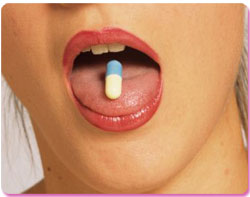Although most people are concerned about hair loss when it happens, many people don’t realize that pubic hair loss can also happen, whether or not hair loss happens on other parts of the body. Pubic hair loss can happen for several reasons, and many times it is a symptom of something serious. Anyone who finds that they are losing their pubic hair, even if they are not losing their hair anywhere else, should try to find out the reason.
Pubic hair loss can definitely coincide with hair loss on other parts of the body. When people are undergoing chemotherapy for cancer, for instance, they will often lose most or all of their head and body hair. This is normal with chemotherapy, and most cancer patients are warned about this ahead of time. Since cancer patients are usually forewarned, there is no reason to look for any other reason for the hair loss. Many women lose more head and body hair, including pubic hair, during or after menopause, and this is also a normal occurrence. Losing most or all of your hair during or after menopause is not normal, however, and a doctor should definitely be consulted if this is happening. Many women also lose head and body hair after childbirth, which is also a normal occurrence. This usually gets better over time. Other causes of head and body hair loss can include iron deficiency anemia, hormonal imbalances, autoimmune deficiency diseases, and certain skin-irritating diseases, such as Eczema. With skin conditions, if the condition is concentrated around the pubic region, then only pubic hair loss will be noticed. Sometimes severe stress can cause loss of hair in the pubic region, although this most often coincides with losing hair on other parts of the body. Other things that can cause pubic hair loss include cirrhosis of the liver, Addisons Disease, hypopituitarism, and an underactive adrenal gland.
The main thing to remember if you notice that you are losing a large amount of hair in your pubic region is that this is a symptom of something else. Losing pubic hair doesn’t just happen for no reason – there is always an underlying cause. Even if you don’t find it necessarily alarming when you are losing large amounts of pubic hair, such as you would if you were losing the hair on your head, you still need to find out the cause. Whatever it is that is causing the hair loss, it can usually be treated easier if you catch it early. Your doctor may have to do several tests to find out the reason behind the loss of hair in your pubic reason, and will have to ask you several questions, but finding the underlying cause is important. If you and your trichologist decide that it is due to stress, then treating the stress with relaxation exercises, therapy, or possibly medication can help stop the hair loss. If it is due to a skin condition in the pubic region, your trichologist will probably be able to prescribe a topical medication that will ease or cure the condition.
